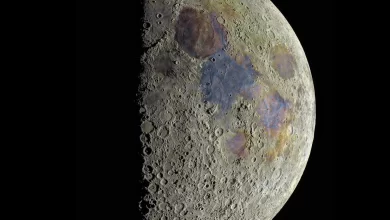Results Of The Extremophyte Experiment In Space
Ege University shared the results of astronaut Alper Gezeravcı's experiment in space on the "Schrenkiella parvula" plant, which grows endemically in Salt Lake.

In the statement made by the university, it was reminded that one of the 13 experiments carried out by Gezeravcı in the space environment was the experiment titled “Investigation of the Responses of Schrenkiella Parvula to Salt Stress in the Space Environment-Extremophyte”, which was conducted by Assoc. Prof. Dr. Rengin Özgür Uzilday, a faculty member at the Department of Biology, Faculty of Science, EU, with the participation of Assoc. Prof. Dr. Barış Uzilday and Prof. Dr. İsmail Türkan as researchers.
It was noted that the photos of the plant were delivered to the project team on a daily basis during the experiment on whether the plant, which is resistant to high-salt environments, could maintain its tolerance to high salinity in very weak gravity.
Pioneering Features To Enable Mars Reclamation
Expressing his views in the statement, Assoc. Prof. Dr. Barış Uzilday gave the following information
“We observed that the plants germinated on the second and third day of the experiment, which was very important for us. We saw that they reached the growth level we expected, but the leaf and stem shapes of the plants differed with microgravity. Schrenkiella parvula is a plant that is tolerant to high salt, heavy metals, low and high temperatures and can adapt to harsh conditions around Salt Lake. It has pioneering features that will enable people to go to places like Mars, where they aim to go and do agriculture in the future.”
Stating that the experiment process continues, Assoc. Prof. Dr. Uzilday said:
“The plants were harvested by our astronaut Alper Gezeravcı at the end of the experiment. The metabolic process was completely stopped with a solution. They were then transferred to a deep freezer at -80 degrees Celsius on the International Space Station. It was brought to earth in a capsule at the same temperature. From there it will come to our country. Following this, we will try to investigate both the growth performance of the plants and which genes are activated with the new generation RNA sequencing method, and how the plant responded to salt under microgravity.”
Congratulations From The Rector
EÜ Rector Prof. Dr. Necdet Budak also congratulated Gezeravcı and the scientists who completed their space mission.
Stating that Turkey has realized important projects within the scope of the National Technology Move initiated under the leadership of President Recep Tayyip Erdoğan and the vision of Turkey’s Century, Budak said:
“Gezeravcı, who is the pride of the Turkish nation, pioneered a new page in the history of our country by signing the first manned space mission and Turkish space science mission. During the 21-day mission, Gezeravcı conducted 13 scientific experiments prepared by Turkish scientists. As Ege University, we will work harder to further strengthen our science and technology-first ecosystem, which is an example for our country, to achieve the most advanced level in science and technology, and to make the Turkish century the century of Turkish science.”






